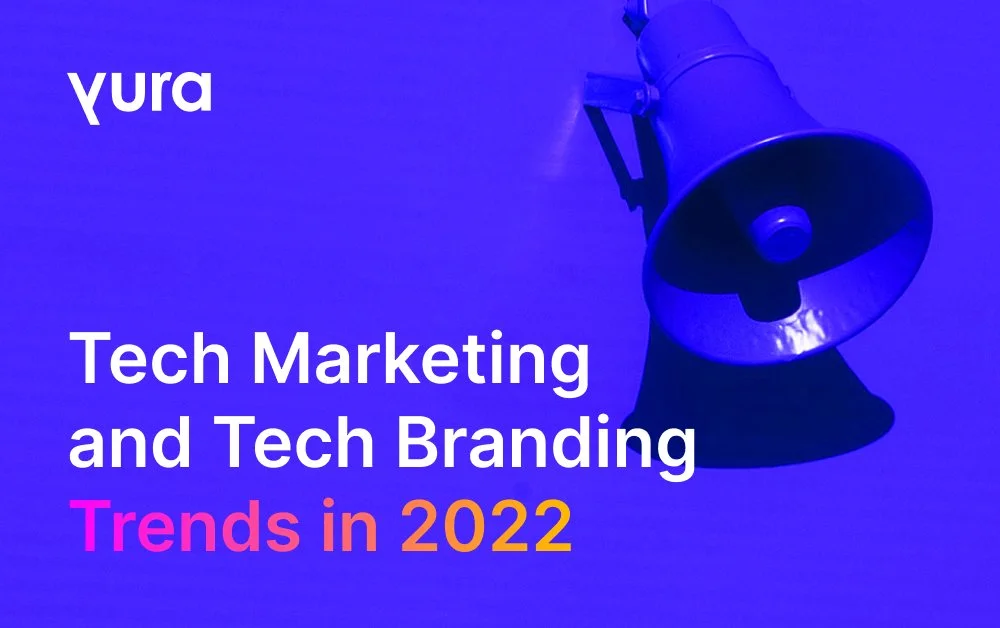Tech Marketing and Tech Branding Trends in 2022
As we go halfway into 2022, the global pandemic continues to accelerate the upward trend of digital and cloud technology in tech marketing and tech branding. Even small businesses have been getting brand strategy services to further grow their businesses. As artificial intelligence (AI), automation, and other consumer engagement technologies continue to expand, let us look into the emerging trends in tech branching and marketing in 2022.
Centralized Customer Data Platform (CPD)
In light of the increasing demands from consumers for improvements in privacy, businesses are evaluating making some changes in data privacy restrictions. Google is targeting to terminate its support to third-party cookies in 2023, ending 10 years of target-driven advertising.
With this move, businesses stand to lose big in terms of data sourcing, hence, marketers are starting to explore other possible ways of collecting and analyzing data. The focus now is on first-party data, which is actually a huge source of information.
Data directly coming from consumers can give businesses a 360 vision and improve personalized experiences. However, most consumers are hesitant to provide pertinent information because of privacy issues.
A centralized and transparent CPD may be able to provide visibility of data coming from different channels. This is actually a good branding approach since brands would be able to make improvements on segmentation and can potentially facilitate a more personalized customer engagement. CPDs will be an integral part of tech marketing this 2022 as this may be able to prioritize consumers for a change.
The Metaverse and Mixed Reality
Facebook probably has the most users worldwide and in 2021, it let metaverse take over, and it rebranded as Meta. Metaverse is still new and on the rise, and the possibilities are endless – large-scale interactive live events, buying digital products using blockchain, seamless blending of gamification tactics – there is still a lot to discover.
Interestingly enough, searches for “metaverse” have more than doubled from 2021 to 2022. Notably, the bulk of the users was in Asia, and only a few in Western countries. According to research from Forrester, the West seem not to be ready for the metaverse just yet. About 36% of users in the United Kingdom and a mere 27% in the United States revealed that they still have no idea what metaverse is all about.
The metaverse is merely an online concept that combines several virtual spaces. We can say this is the future of the internet. It allows users to work, play games, meet and socialize just by using the different 3D spaces. It may not be fully in existence yet, but there are a few platforms that are starting to use metaverse-like elements. Video game developers are starting to use the metaverse by initiating in-game events and starting virtual economies.
Blockchain is a metaverse-like application that already exists. For example, Axie Infinity, a play-to-earn game, is starting to become popular among users who play games to earn.
Extended reality – virtual (VR), augmented (AR), and mixed (MR) – may come into play as the metaverse becomes big in the coming years. For one, AR may be integral in different marketing strategies for its ability to give virtual representations of real products, like clothes, home furnishings, etc. in a real-world environment. Imagine allowing consumers to experience how products will fit in their homes. It provides customers with more immersive and experiential online shopping experiences, thereby creating more brand engagement and loyalty.
VR may also come into its own as an effective marketing tool, as we take a look at the increasing availability of cheaper headset technology. This may turn out to be an effective branding strategy as virtual showrooms and even malls can become a place to show what the product can do in a more immersive manner.
The real estate industry might benefit from this as well. It can be used in marketing by allowing potential buyers to take a virtual tour of the properties they are interested in. There is a new technology called haptic feedback devices that can give users the “feel” in VR and allows them to try the products in ways that weren’t possible some years back.
The metaverse continues to grow and slowly, brands are starting to be open to utilizing it for their businesses. Most brands continue to look for a branding services agency that can help navigate this emerging trend.
AI-Powered Marketing
Building a tech brand could be a challenge, but brands are now starting to recognize how beneficial AI or artificial intelligence is. The International Data Corporation (IDC) estimates about 75% of the Global 2000 B2B and B2C firms will use AI, conversation computing, and big data, by 2030.
This year is the perfect time for businesses to push some boundaries. AI will allow businesses to leverage customer data to forge relationships with consumers that can deliver relevant and compelling experiences. Healthcare, marketing, retail, finance, and pharmaceutical research are just some of the few sectors that are investing in AI to improve branding.
Retailing giant Amazon is one of the trailblazers in AI technology. Combining past consumer behaviors and predictive algorithms, their recommendation engine can provide real-time customized suggestions, even before their clients realize they actually need them, thus increasing their total sales by up to 35%.
This year, experts continue to see growth in the use of natural language processing or NLP solutions, which helps create marketing copy that can pull in an audience. NLP will also help pinpoint where products and services are being discussed on social media. Chatbots are seen to become more sophisticated and will evolve from offering basic customer service advice to engaging with potential customers in a marketing role.
With AI and machine learning, businesses would be able to deliver the 360°customer view that every marketing has long dreamed of in an automated and targeted fashion. As marketers continue to learn, understand, and eventually trust AI to be incorporated into their marketing processes, AI will just continue to grow in the succeeding years.
The future of tech marketing and brand marketing looks bright as businesses become open to the signs of the times. The better they know their customers, the more they are likely to succeed and grow their businesses.









